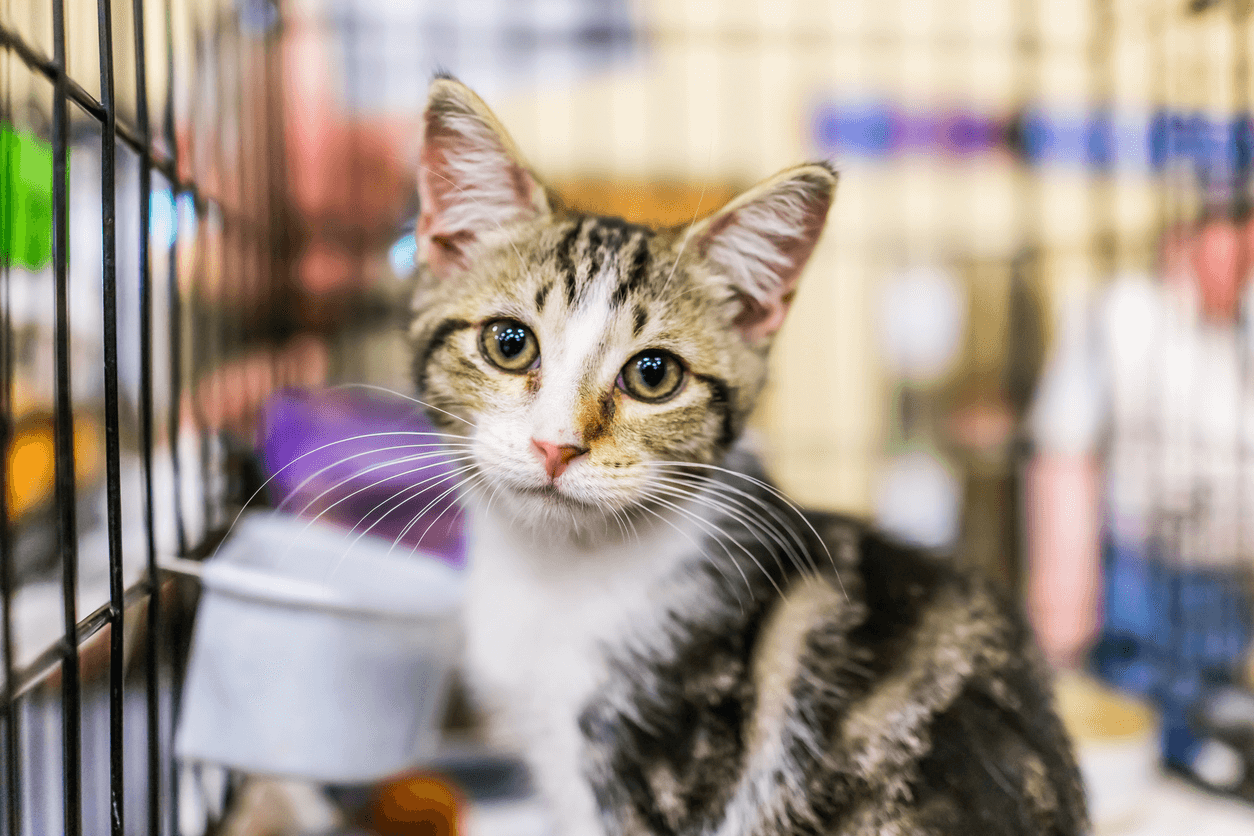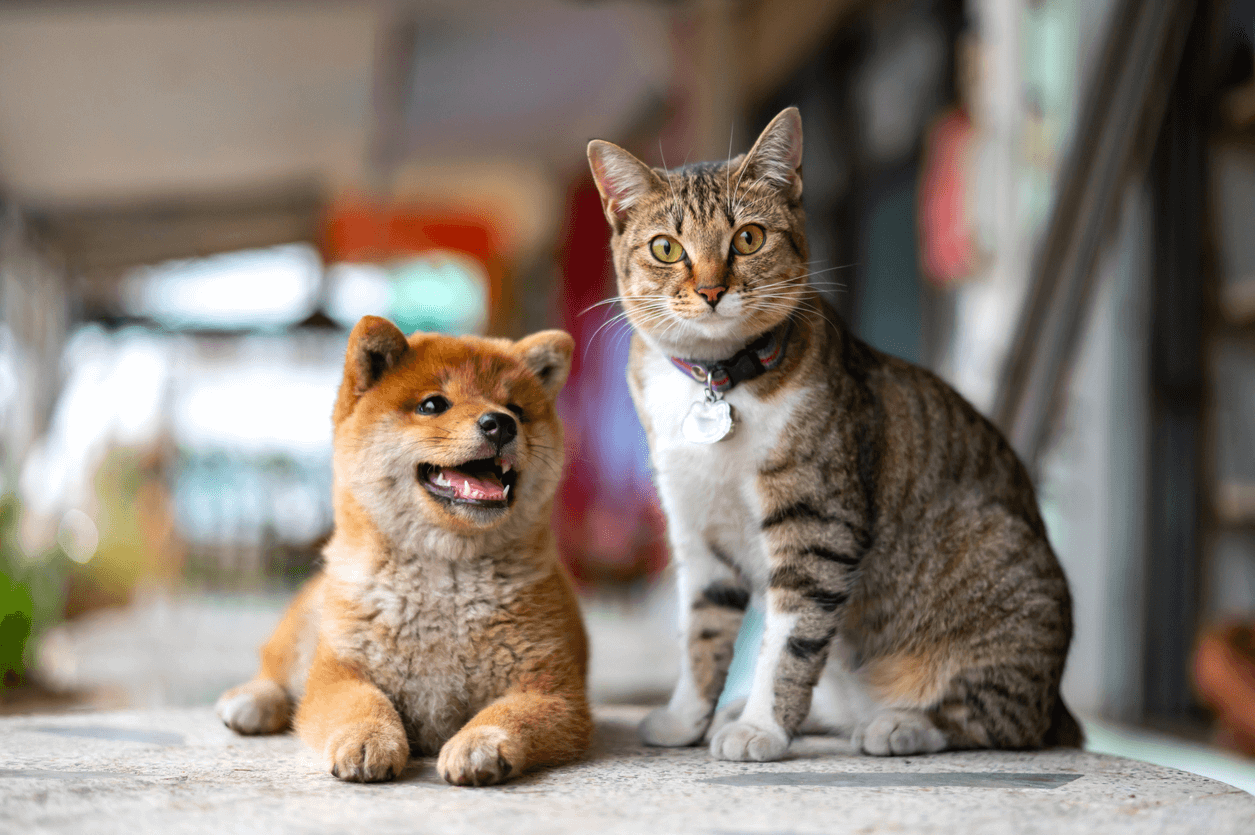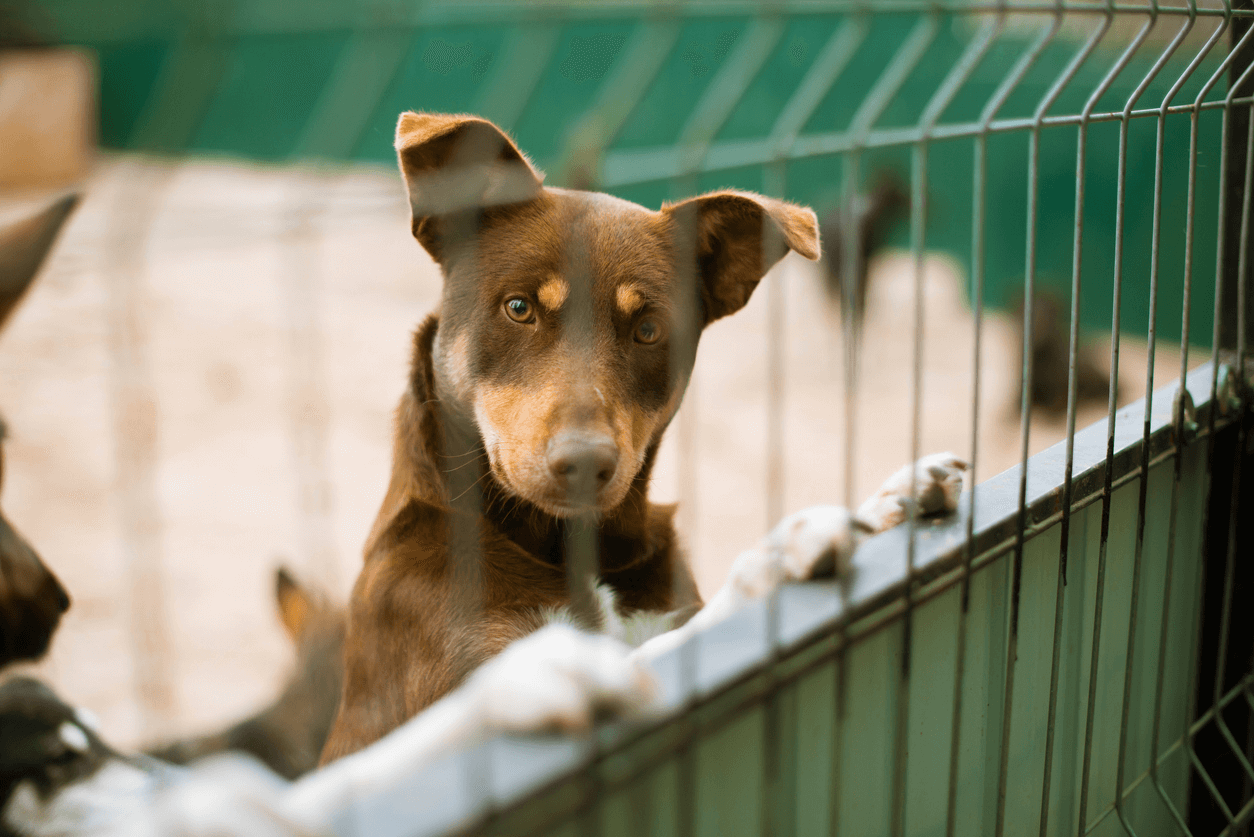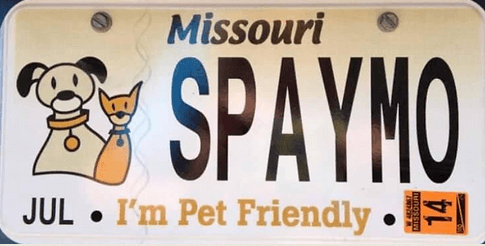
Missouri’s Animal Care Facilities Act (ACFA) Program regulates commercial activities involving dogs and cats. Our program licenses and inspects breeding and boarding facilities, animal shelters, rescues, municipal pounds, pet shops, exhibitors, pet sitters, dealers or brokers, and transport companies. Additionally, we register breeders who qualify under the hobby or show category. Eighteen dedicated field staff ensure all covered facilities meet our state’s standards for animal care and husbandry.
Missouri has strict requirements for all licensed facilities. In some instances, our regulation standards for space, veterinary care, and animal husbandry exceed those of the United State Department of Agriculture (USDA). All animal shelters and rescue organizations are required to be licensed. All breeders harboring more than three intact females must be licensed or registered. All licensed facilities are inspected at least once per year or upon complaint. Inspection reports are kept on file and are available to the public upon request.



An ACFA license is required for any person or organization who breeds dogs or cats or sells their offspring and harbors more than three (3) intact females; boards dogs or cats at a facility not the pet owner’s own home in return for a consideration; operates an animal shelter, rescue, or municipal pound; operates a pet shop where cats and/or dogs are offered for sale to the public; exhibits dogs or cats to the public; transports animals commercially; or acts as a dealer or broker in Missouri.
Pet sitters who board dogs or cats in their own homes, dog trainers who board animals overnight while training them, auctions, farmers markets and swap meets that have dog/cats for sale, and privately owned organizations which are contracted with local governments to act as municipal pounds are included in these definitions and must be licensed.
ACFA licenses and registrations are issued for a one-year period and must be renewed on an annual basis. ACFA licenses and registrations expire January 31 each year. A renewal application should be submitted to the ACFA office prior to January 31 during each year a license or registration is required.
Hobby or show breeder registration is restricted to breeders with ten (10) or less intact females who breed dogs or cats with the primary purpose of exhibiting or showing those animals. Breeders who harbor eleven (11) or more intact females are subject to the ACFA and CCPA, and those breeders must be licensed regardless of whether they show their animals. Registered hobby or show breeders are excluded from licensing fees and programs of veterinary care requirements. They are not inspected annually but may be investigated in the case of a complaint.
To qualify as a hobby or show breeder, registrants must harbor ten (10) or less intact females and provide proof of participation at a public and competitive show at least once per year. Additionally, they may only sell animals to individuals or other breeders. They are prohibited from sales to pet shops, auctions, dealers, and/or brokers.
If a breeder cannot qualify as a hobby or show breeder (or as an exempt breeder), they must apply for a license.
The initial ACFA application fee is $125.
Renewal applications must be accompanied by a $125 payment, plus a per capita fee. Per capita worksheet fees are calculated from January 1 to December 31 of the previous calendar year. Total payments are capped at $2,525.
A program of veterinary care (PoVC) is a formal written agreement between the licensee and their attending veterinarian. The program of veterinary care must be reviewed and approved on an annual basis by the attending veterinarian. Additionally, the attending veterinarian must make a premises visit to each facility at least once a year.
Operation Bark Alert is an online webform which collects complaints regarding unlicensed or substandard facilities falling under jurisdiction of ACFA. Those complaints determined to be valid for investigation are assigned to ACFA officials. It is important that complaints include specific violations of law, documents and observations which might substantiate those complaints, and contact information for the complainant in order that our staff can conduct an appropriate investigation.
Complaints (including names and allegations) are public records and are provided under the Missouri Sunshine Law.
For additional information regarding Operation Bark Alert, you can contact us at (573) 751-3076 or email at acfa@mda.mo.gov.
It is best if you have firsthand knowledge or observations of the issues when submitting a complaint. You should include corroborating evidence such as photographs or veterinary medical records to support your allegations.
Keep in mind that these reports are not confidential. Your name will be included in our records, all of which are discoverable under the Sunshine Law. For additional information regarding complaints, you can contact us at (573) 751-3076 or email at acfa@mda.mo.gov.
Missouri’s Sunshine Law requires records of public governmental bodies be open to the public unless otherwise provided by law. All branches, agencies, divisions and programs that are part of Missouri’s government are committed to transparency in government. All ACFA records, such as inspection reports, complaints, and investigative reports can be obtained through this process.

The Missouri Department of Agriculture administers funds for pet spay and neuter programs generated by donations to the sale of “I’m Pet Friendly: specialty license plates. These grants are distributed to selected organizations for their efforts to help reduce the number of unwanted animals through local and regional sterilization initiatives.
Animal shelters, qualifying non-profits, and government agencies with current or proposed spay/neuter programs are encouraged to apply for these grants. Awards are determined based upon the availability of funds and evaluation of information sent in the proposals. In order to be eligible for awards, entities must be conducting spay/neuter surgeries on cats or dogs in Missouri.
Grant applications are accepted from January 1 through the end of February each year. The number of applications and available funding varies from year to year, so organizations are encouraged to apply whether or not they were awarded grant(s) in the past.
“I’m Pet Friendly” license plates cost purchasers $25 per year for the emblem use fee and $15 for the plate fee.
“I’m Pet Friendly” license plates must be requested through the application for specialty and personalized license plates ( Form 1716), which must be accompanied by an Emblem Use Authorization Statement (EUAS). The EUAS is issued by the Missouri State Humane Association. Directions for applying for the EUAS and receiving your “I’m Pet Friendly” plates may be found on the Missouri State Humane Association website.
Recent grant recipients include APA of Missouri, BARC, Operation SPOT, Humane Society of Ray County, Animal Kind Inc., Franklin County Humane Society, No Kill Columbia dba The Spay Neuter Project, Kirksville Protect Our Pets, Watching Over Whiskers, Pet Resource Center of KC, TNR Patrol Inc., and The Center for Animal Rescue and Enrichment. If you are seeking low cost spay/neuter for your pet, we recommend you call any of these groups.
The Blue Ribbon Breeder Program recognizes Missouri's elite kennels and catteries, facilities which take pride in providing healthy, socialized, superior animals to families across the United States and beyond. These breeders voluntarily meet higher standards than other licensed breeders in the state. They demonstrate a commitment to their profession through active participation in continuing education opportunities. Blue Ribbon Breeders are scrutinized for adherence to these heightened standards in annual inspections, and any facility which does not meet these higher standards may be expelled from the program.
In addition to continuing education requirements, Blue Ribbon Breeders must maintain a written biosecurity plan outlining the precautions they take to maintain animal health and safety at their facility. An ACFA veterinarian accompanies on inspection of these facilities. Furthermore, each puppy or kitten sold by the breeder is identified by a microchip.
Primo Puppies - Lamar, MO - featuring Miniature Poodles and Pomeranians
“Kevin and Shelby have been raising puppies since 2010. We have a small facility, hand-selecting the best dogs, carefully chosen for conformation and temperament. Our goal is to provide a quality, healthy, loving companion for our customers. We are USDA, MO state licensed and also AKC Bred with H.E.A.R.T. participants.”
Long Range Ranch - Versailles, Mo. - featuring Pembroke Welsh Corgis and Mini American Shepherds
"As lifelong livestock growers, we have had a love for the herding breeds forever. This led us to breed Pembroke Welsh Corgis and Miniature American Shepherds. We love both breeds and love that we can pass on the joy to our puppy families."
Pop Culture Puppies - Neosho, MO - featuring Dachshunds and Cavalier King Charles Spaniels
”Our family loves to name dogs after our favorite characters from books, movies, and more. Our goals for our dogs are to have the best health and behavior, which is why we have been Canine Care Certified with Purdue Veterinary University from the beginning. We hope you love our puppies as much as we do.”
Russow Ranch LLC - Odessa, MO - featuring Boston Terriers and Giant Schnauzers
Sassy's Classy Canines - Lebanon, MO - featuring Shetland Sheepdogs and Miniature Schnauzers
“We Have Been Showing and Breeding Dogs for a Combined 50 Years! We devote all of our time to raising happy, healthy and quality puppies that come pre-spoiled just for you.”
Shangrila Kennel - Fredericktown, MO – 573-783-9956 - featuring exclusively Cavapoos
“Our Cavapoos make the best FUR-iends!”
The Canine Care Workshop is an annual conference hosted by the ACFA Program and the United States Department of Agriculture’s Animal and Plant Health Inspection Service (USDA-APHIS). This workshop is for breeders of all sizes and offers six hours of continuing education. Speakers from previous years have lectured on breeding practices, parasite control, marketing of animals, business and tax practices, and disease prevention.
The 2024 Canine Care Workshop will be held October 4, 2024. The Canine Care Workshop 2024 flyer contains a list of topics, speakers, and information on the location and format of the event. The link for registration is available now.
Several pet associations and breeder groups throughout Missouri provide educational, advocacy, and promotional opportunities. These groups work to promote public opinion of breeders and the pet industry.
Conferences are hosted throughout the year at different locations. Interested parties are encouraged to contact breeder groups in their respective geographic areas.
There are opportunities for animal control officials, animal cruelty investigators, and animal shelter and rescue workers to learn more about their respective fields of work. Trainings are offered by the Missouri Animal Control Association and the National Animal Cruelty Investigations School through the University of Missouri’s Law Enforcement Training Institute.
Canine brucellosis is caused by the bacteria Brucella canis and causes reproductive failure in dogs. Infected dogs may also spread this disease to humans. Canine brucellosis is a reportable disease in Missouri.
In dogs, brucellosis is usually spread through contact with infected birthing tissues and fluids (e.g., placenta, aborted fetuses, fetal fluids, and vaginal discharges) and can also be transmitted by contaminated objects. The bacteria can also be found in the milk, blood, and semen of infected dogs, and entry can occur by ingestion, direct contact with mucous membranes (eyes, nose, mouth), or breaks in the skin.
Brucella canis causes reproductive problems (e.g. abortions, stillbirth, or infertility) in dogs. Other signs can include inflammation of lymph nodes, behavioral abnormalities, lethargy, and weight loss. Canine brucellosis may be controlled but is considered to be incurable in dogs, as reinfections or relapses are common. Dogs diagnosed with canine brucellosis often must be euthanized in order to protect the wider population of other dogs and humans which they might come in contact.
Brucella canis can survive for months in the environment under optimum conditions but can be destroyed by heat and some disinfectants. Thoroughly clean and disinfect areas exposed to infected dogs, their urine, blood, milk, or discharges. Keep sick dogs away from other dogs to avoid spreading the disease. Carefully screen for the disease by testing dogs to prevent introduction into your breeding program.
The Missouri Department of Agriculture offers a Canine Brucellosis-monitored certification for breeders. If you are interested in this certification, please see the form below.
Quarantine is instituted when a dog receives a positive test which confirms the presence of canine brucellosis. A determination is made as to the extent of exposure of dogs to be quarantined on the premises. Quarantined dogs must meet testing requirements set forth by the state veterinarian prior to release.
Animal Health Division
1616 Missouri Blvd
PO Box 630
Jefferson City, MO 65109